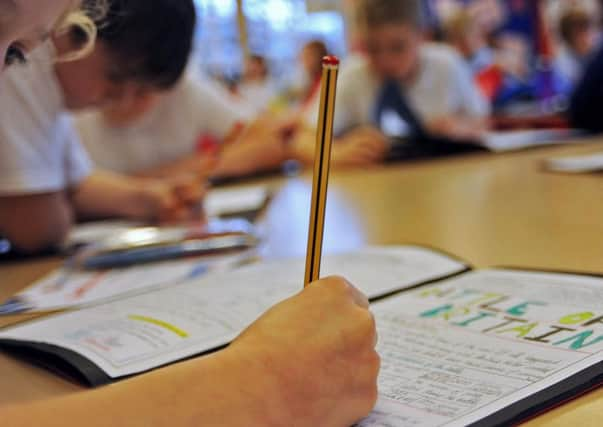Scheme to give glasses to children in parts of Yorkshire


Since 2007, a scheme has been underway through Born in Bradford, seen as one of the biggest and most important health research studies in the UK, to track the lives of over 13,500 children, looking at challenges around the city’s health.
Now, as part of a project backed by health leaders and academics, an initiative around eyesight – and providing glasses to children who may not otherwise have access to them – is to be trialled in the surrounding area.
Advertisement
Hide AdAdvertisement
Hide AdWhile all reception age children undertake eyesight tests, a third of those who fail do not go on to get glasses, the Education Endowment Foundation (EEF) has warned, with this information not shared with schools.
As a result, they add, many may be held back from their learning by a misdiagnosed problem, and the initiative is aimed at supporting some of the most disadvantaged.
“Making sure all young children with possible eyesight problems are identified and supported with glasses or other treatments is a clear win-win, helping improve health as well as educational opportunities,” said Sir Kevan Collins, chief executive of the EEF. “Our new trial will find out how best schools can provide practical support to parents so that no child faces this unnecessary barrier to learning.”
The pupils at 100 schools are expected to take part in the trial.
Advertisement
Hide AdAdvertisement
Hide AdDeveloped by a team at the University of Leeds and the Bradford Teaching Hospitals NHS Foundation Trust, the programme will see test results shared with schools as well as parents.
“Poor eyesight in young children can be enormously difficult for parents or teachers to detect, and even where it’s obvious, there is currently no mechanism to ensure vision screening results are ever acted upon,” said Prof Mark Mon-Williams, lead academic from the University of Leeds.
“We believe this project shows great promise and could help the large number of children with visual problems across the country to have a more positive educational experience, and ensure they have the good start in life that every child deserves.”
Staff will be trained to support families and encourage pupils to wear their glasses, while funding will be provided for a second pair of glasses for the children to keep at school. Additionally, each school will appoint a member of staff to manage the relationship between school, families, opticians and health services.
Advertisement
Hide AdAdvertisement
Hide AdEarlier research by Dr Alison Bruce, director of vision research at the Born in Bradford programme, found that failing to treat undiagnosed eye conditions – like short-sightedness, or astigmatism - can hold back the development of literacy skills.
While these issues can affect all children, those from disadvantaged backgrounds are more likely to go without a diagnosis, the EEF has warned.
Dr Alison Bruce, director of vision research at the Born in Bradford programme, said: “Reduced vision in young children is enormously difficult for parents or teachers to detect.
“Even where obvious, there is currently no mechanism to ensure vision screening results are actioned. This can leave the condition untreated throughout a child’s early school years, with known potential to impact on their future educational attainment.
“This new research, which will trial the sharing of information between health and education services, provides the opportunity to influence national policy in the future.”